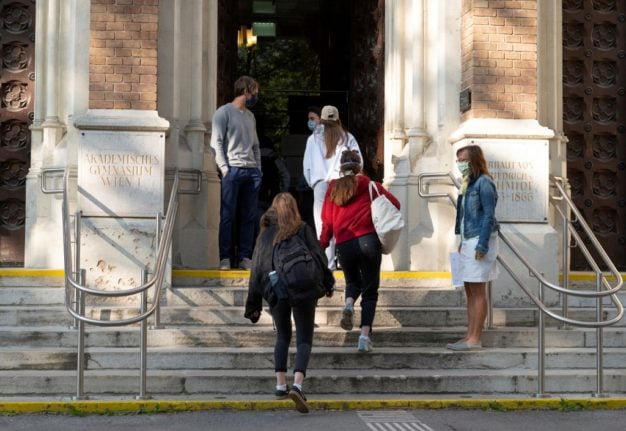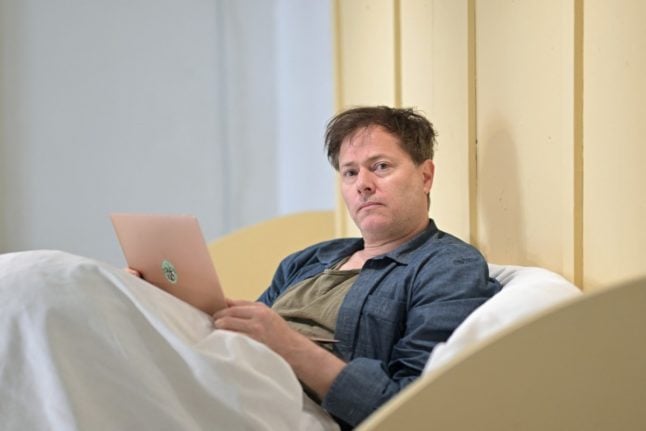Schools in the eastern Austrian states of Vienna, Burgenland and Lower Austria have switched to distance learning since the start of April.
Distance learning in schools in the three states will remain in place until April 18th, after a decision on April 6th to extend the lockdown due to concerns about dwindling ICU capacity.
Here’s what you need to know.
Why are schools closed – and when will they open?
If the seven-day incidence in a municipality district exceeds 400 schools should switch to distance learning, unless the cluster can be linked to a specific outbreak.
However, if the incidence drops permanently, schools should open full time again.
More sensitive tests for schools planned after Easter break
Since 15th March, all children at school must test themselves three times a week at elementary and special schools, and alternate days in all other schools.
Children who can show they have experienced a coronavirus infection in the past six months or still have antibodies do not need a test.
Better self-tests with a higher sensitivity should be offered from the AHS lower level and middle school after Easter, it was announced last week according to the Vienna AT website.
Quarantine rules to become stricter
If two people in a classroom test positive for coronavirus with a PCR test, the entire class should be sent to quarantine for 14 days.
Pupils and teachers with an infection in the class will automatically be classified as Category 1 contact persons. These measures, previously in place in Vienna, now apply across Austria.
What about PCR tests in schools?
Education Minister Fassmann is aware critics say tests are not sensitive enough, but notes PCR testing of all students, teaching and administrative staff, several times a week, would “cross logistical boundaries”, according to the website Vienna AT.
PCR tests take longer to process than the fast antigen tests, and do not give results in 15 minutes.
Gurgle tests continue to be used
Gurgle tests, a form of PCR test which involves gargling, are being used in two ways in Austria.
The first is an Austria wide “gargle study” which began in Autumn 2020 of around 14,800 pupils between the ages of six and 15 in primary and secondary levels, as well as around 1,200 teachers who are tested at regular intervals.
READ MORE: Vienna to roll out free coronavirus ‘gurgle tests’ next week
The second is a gurgle test offering provided by the Ministry for Education, Science and Research (BMBWF) and the Vienna health authorities since September 2020.
The gurgle tests are used by mobile teams from the local health authority when there are suspected cases of coronavirus in schools.
New corona tests for kindergartens
A project will start on 7th April in Lower Austria to give kindergarten children “lollipop tests” in five kindergartens.
The aim is to detect CoV infections earlier in kindergarten.
If the pilot project is a success, it could be rolled out across Lower Austria in the next two weeks.
The tests are said to be similar to using a toothbrush, broadcaster ORF reports.
Masks remain mandatory
Masks covering the mouth and nose must be worn in school buildings in Austria. In elementary and special schools masks only need to be worn by children outside of the class and group rooms
Lower secondary school students must wear masks throughout the school building, and upper secondary level should wear FFP2 masks within the school building
Teachers and people working in school administration should wear an FFP 2 mask within the school building.
Special allowances for children whose grades have suffered due to lockdown
Children who receive a grade of 5 (nicht genügend or “unsatisfactory) in one subject will not have to repeat the school year. If the child has missed the grade two years in a row, a repeat examination can be taken.
The maximum length a child can attend school is being increased by one year to allow children to catch up by repeating a year voluntarily.
Laptops available for lockdown learning
Parents or legal guardians who do not have laptops should contact their school directly to see if they can borrow one. In addition the #weiterlernen initiative gives out donated devices to schoolchildren across Austria free of charge. Find out more on the website weiterlernen.at.



 Please whitelist us to continue reading.
Please whitelist us to continue reading.
Member comments